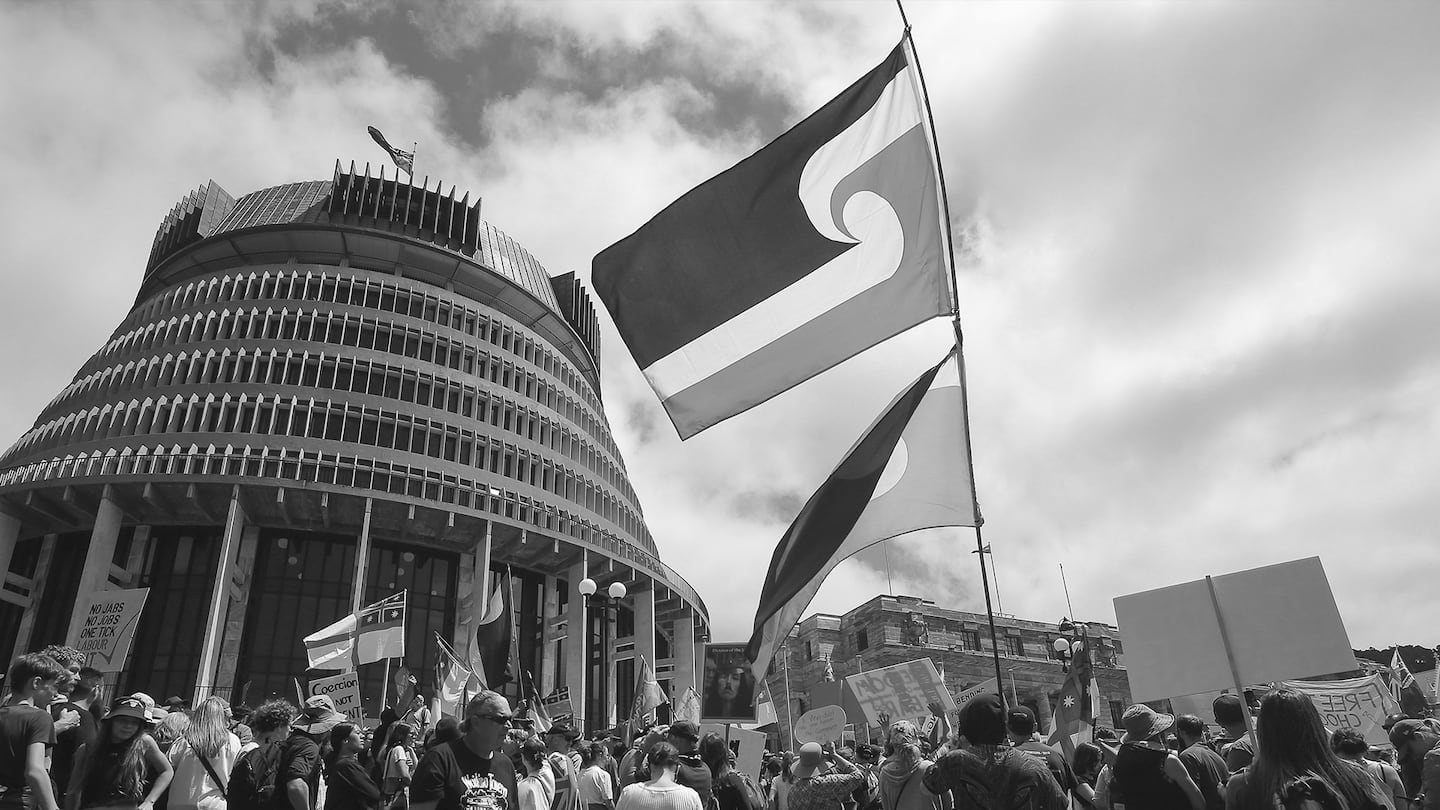Aotearoa’s changing approach to the Treaty of Waitangi and international human rights will be in the spotlight tonight.
Te Kāhui Tike Tangata Human Rights Commission is in Geneva this week for the 17th annual session of the Expert Mechanism on the Rights of Indigenous Peoples (EMRIP).
Tatau Urutahi shared leader Julia Whaipooti will present commission concerns to the EMRIP board, saying Aotearoa is failing to maintain its commitment to Te Tiriti and international human rights obligations to indigenous peoples.
At 9 pm NZT, Whaipooti will outline the impact of the coalition government’s extensive law reform programme, including the disestablishment of a Māori health authority, attempts to repeal Māori wards in local government, and the proposed Treaty Principles Bill.
Whaipooti last spoke at the UN in 2018 when she talked to the panel about over-incarceration of Māori and the proposed Waikera mega prison. Since then, the prison has been given extra funding from the coalition’s 2024 budget.
Whaipooti said the kaupapa she highlighted back in 2018 were still problems.
‘Extremely vulnerable’
“We’re perceived internationally as leaders in indigenous rights. However, the lack of any legislative recognition of the UN Declaration on the Rights of Indigenous Peoples (UNDRIP), and the very limited legal protections for Te Tiriti o Waitangi mean Māori rights are extremely vulnerable.”
She will also support the National Iwi Chairs Forum’s Aotearoa Independent Monitoring Mechanism, which will deliver its 10th annual monitoring report for (UNDRIP.
Earlier this year the National Iwi Chairs Forum quit a government group planning a National Action Plan Against Racism, citing the government’s actions that it said reduced focus on colonial racism against Māori.
Justice Minister Paul Goldsmith said he would continue developing a National Action Plan Against Racism, without tangata whenua input.
Later this year EMRIP will visit Aotearoa to examine how well New Zealand is meeting its international obligations. It will offer advice.
This comes after the visit of United Nations special rapporteur Francisco Calí Tzay, who spoke to iwi and hapū leaders, Te Kāhui Tika Tangata, Māori organisations and Indigenous legal experts on Māori rights and the role te Titiri o Waitangi plays in New Zealand’s constitution.




